 W
WJordan Anderson or Jourdon Anderson was an African-American and former slave noted for an 1865 letter he dictated, known as "Letter from a Freedman to His Old Master". It was addressed to his former master, Colonel P. H. Anderson, in response to the Colonel's request that Mr. Anderson return to the plantation to help restore the farm after the disarray of the war. It has been described as a rare example of documented "slave humor" of the period and its deadpan style has been compared to the satire of Mark Twain.
 W
WBlanche Kelso Bruce was born into slavery in Prince Edward County, Virginia and went on to become a politician who represented Mississippi as a Republican in the United States Senate from 1875 to 1881. He was the first elected African-American senator to serve a full term.
 W
WPowell Foulk Clayton was an American politician, diplomat, and businessman who served as the U.S. Ambassador to Mexico from 1899 to 1905. A member of the Republican Party, Clayton also served in the U.S. Senate and as the 9th governor of Arkansas from 1868 to 1871.
 W
WRebecca Lee Crumpler, née Davis, was an American physician and author. After studying at New England Female Medical College, in 1864 she became the first African-American woman to become a doctor of medicine in the United States. Crumpler was the only female physician author in the nineteenth century. In 1883, she published A Book of Medical Discourses. Dedicated to nurses and mothers, it focused on maternal and pediatric medical care and it was among the first publications written by an African American about medicine.
 W
WHenry Winter Davis was a United States Representative from the 4th and 3rd congressional districts of Maryland, well known as one of the Radical Republicans during the Civil War. He was the driving force behind the abolition of slavery in Maryland in 1864.
 W
WHenry Laurens Dawes was an attorney and politician, a Republican United States Senator and United States Representative from Massachusetts. He is notable for the Dawes Act (1887), which was intended to stimulate the assimilation of Native Americans by ending the tribal government and control of communal lands. Especially directed at the tribes in Indian Territory, it provided for the allotment of tribal lands to individual households of tribal members, and for their being granted United States citizenship. This also made them subject to state and federal taxes. In addition, extinguishing tribal land claims in this territory later enabled the admission of Oklahoma as a state in 1907.
 W
WJonathan Clarkson Gibbs, II was a Presbyterian minister and a prominent African-American officeholder during Reconstruction. He served as the first and only black Secretary of State and Superintendent of Public Instruction of Florida, and along with Josiah Thomas Walls, U.S. Congressman from Florida, was among the most powerful black officeholders in the state during Reconstruction.
 W
WUlysses S. Grant was an American soldier and politician who served as the 18th president of the United States from 1869 to 1877. Before his presidency, Grant led the Union Army as Commanding General of the United States Army in winning the American Civil War. As president, Grant worked with the Radical Republicans during Reconstruction to protect blacks and reestablish the public credit, while rebuilding the U.S. Navy.
 W
WAndrew Johnson was the 17th president of the United States, serving from 1865 to 1869. He assumed the presidency as he was vice president at the time of the assassination of Abraham Lincoln. Johnson was a Democrat who ran with Lincoln on the National Union ticket, coming to office as the Civil War concluded. He favored quick restoration of the seceded states to the Union without protection for the former slaves. This led to conflict with the Republican-dominated Congress, culminating in his impeachment by the House of Representatives in 1868. He was acquitted in the Senate by one vote. His main accomplishment as president was the Alaska purchase.
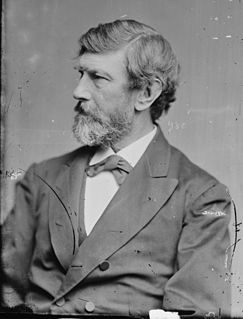 W
WWilliam Darrah Kelley was a Republican member of the U.S. House of Representatives from Pennsylvania. As an abolitionist, he was one of the founders of the Republican Party in 1854, and a friend of Abraham Lincoln. Kelley was a man of strict principles, advocating the recruitment of black troops in the civil war, and the extending of the vote to them afterwards. His belief in protective tariffs was so extreme that he refused to wear a single imported garment.
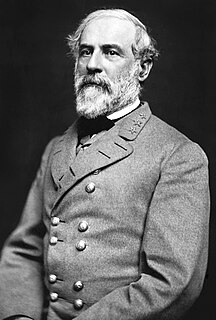 W
WRobert Edward Lee was an American Confederate general best known as a commander of the Confederate States Army during the American Civil War. He commanded the Army of Northern Virginia from 1862 until its surrender in 1865 and earned a reputation as a skilled tactician.
 W
WGeorge Washington McCrary was a United States Representative from Iowa, the 33rd United States Secretary of War and a United States Circuit Judge of the United States Circuit Courts for the Eighth Circuit.
 W
WRobert Meacham (1835–1902) was an African-American leader in Florida during Reconstruction. He was born a slave in Quincy, Florida; as one of his master's sons, he was educated by him. He purchased his freedom and that of his mother with money he had saved out of gratuities given to him by his master. He helped to establish the African Methodist Episcopal Church in Florida and acted as a minister. He helped write Florida's new Constitution of 1868.
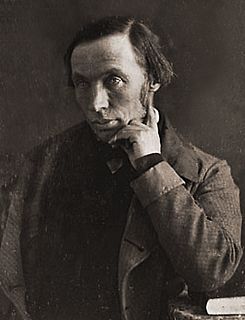 W
WRobert Dale Owen was a Scottish-born Welsh social reformer who immigrated to the United States in 1825, became a U.S. citizen, and was active in Indiana politics as member of the Democratic Party in the Indiana House of Representatives and represented Indiana in the U.S. House of Representatives (1843–47). As a member of Congress, Owen successfully pushed through the bill that established Smithsonian Institution and served on the Institution's first Board of Regents. Owen also served as a delegate to the Indiana Constitutional Convention in 1850 and was appointed as U.S. chargé d'affaires (1853–58) to Naples.
 W
WJoseph Hayne Rainey was an American politician. He was the first black person to serve in the United States House of Representatives and the second black person to serve in the United States Congress. His service included time as presiding officer of the House of Representatives. Born into slavery in South Carolina, he and his family were freed in the 1840s when his father purchased their freedom. Revels and Rainey were both members of the Republican Party.
 W
WThomas Alexander Scott was an American businessman, railroad executive, and industrialist. President Abraham Lincoln in 1861 appointed him to serve as U.S. Assistant Secretary of War, and during the American Civil War railroads under his leadership played a major role in the war effort. He became the fourth president of the Pennsylvania Railroad (1874–1880), which became the largest publicly traded corporation in the world and received much criticism for his conduct in the Great Railway Strike of 1877 and as a "robber baron." Scott helped negotiate the Republican Party's Compromise of 1877 with the Democratic Party; it settled the disputed presidential election of 1876 in favor of Rutherford B. Hayes in exchange for the federal government pulling out its military forces from the South and ending the Reconstruction era. In his final years, Scott made large donations to the University of Pennsylvania.
 W
WPhilip Henry Sheridan was a career United States Army officer and a Union general in the American Civil War. His career was noted for his rapid rise to major general and his close association with General-in-chief Ulysses S. Grant, who transferred Sheridan from command of an infantry division in the Western Theater to lead the Cavalry Corps of the Army of the Potomac in the East. In 1864, he defeated Confederate forces under General Jubal Early in the Shenandoah Valley and his destruction of the economic infrastructure of the Valley, called "The Burning" by residents, was one of the first uses of scorched-earth tactics in the war. In 1865, his cavalry pursued Gen. Robert E. Lee and was instrumental in forcing his surrender at Appomattox.
 W
WWilliam Tecumseh Sherman was an American soldier, businessman, educator, and author. He served as a general in the Union Army during the American Civil War (1861–65), receiving recognition for his command of military strategy as well as criticism for the harshness of the scorched earth policies he implemented in conducting total war against the Confederate States. British military theorist and historian B. H. Liddell Hart declared that Sherman was "the first modern general."
 W
WThaddeus Stevens was a member of the United States House of Representatives from Pennsylvania and one of the leaders of the Radical Republican faction of the Republican Party during the 1860s. A fierce opponent of slavery and discrimination against African Americans, Stevens sought to secure their rights during Reconstruction, leading the opposition to U.S. President Andrew Johnson. As chairman of the House Ways and Means Committee during the American Civil War, he played a leading role, focusing his attention on defeating the Confederacy, financing the war with new taxes and borrowing, crushing the power of slave owners, ending slavery, and securing equal rights for the Freedmen.
 W
WAlexander Hugh Holmes Stuart was a prominent Virginia lawyer and American political figure associated with several political parties. Stuart served in both houses of the Virginia General Assembly, as a U.S. Congressman (1841-1843), and as the Secretary of the Interior. Despite opposing Virginia's secession and holding no office after finishing his term in the Virginia Senate during the American Civil War, after the war he was denied a seat in Congress. Stuart led the Committee of Nine, which attempted to reverse the changes brought by Reconstruction. He also served as rector of the University of Virginia.
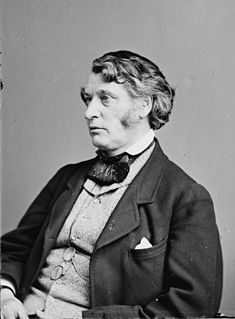 W
WCharles Sumner was an American politician and United States Senator from Massachusetts. As an academic lawyer and a powerful orator, Sumner was the leader of the anti-slavery forces in the state and a leader of the Radical Republicans in the U.S. Senate during the American Civil War. During Reconstruction, he fought to minimize the power of the ex-Confederates and guarantee equal rights to the freedmen. He fell into a dispute with President Ulysses Grant, a fellow Republican, over the control of Santo Domingo leading to the stripping of his power in the Senate and his subsequent effort to defeat Grant's re-election.
 W
WStephen Atkins Swails was a soldier in the Union Army during the American Civil War. Although originally enlisting as a private, he was the first African-American soldier promoted to commissioned rank, as a line officer, in that conflict, as evidenced by the U.S. War Department's initial refusal of that promotion due to his "African descent."
 W
WWilliam Hannibal Thomas was an American teacher, journalist, judge, writer and legislator.
 W
WBenjamin Ryan Tillman was an American politician of the Democratic Party who served as Governor of South Carolina from 1890 to 1894, and as a United States Senator from 1895 until his death in 1918. A white supremacist who opposed civil rights for black Americans, Tillman led a paramilitary group of Red Shirts during South Carolina's violent 1876 election. On the floor of the U.S. Senate, he defended lynching, and frequently ridiculed black Americans in his speeches, boasting of having helped kill them during that campaign.
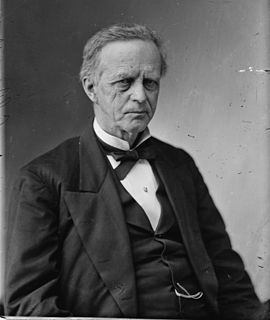 W
WLyman Trumbull was a United States Senator from Illinois and the co-author of the Thirteenth Amendment to the United States Constitution.
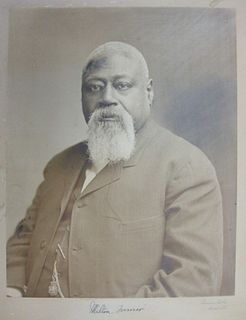 W
WJames Milton Turner was a Reconstruction Era political leader, activist, educator, and diplomat. As consul general to Liberia, he was the first African-American to serve in the U.S. diplomatic corps.
 W
WMarshall Harvey Twitchell was a Union Army soldier from Vermont who became a prominent political figure in Louisiana's post-war Reconstruction, including two terms as a Republican member of the Louisiana State Senate.
 W
WBenjamin Franklin "Bluff" Wade was an American lawyer and politician who served as one of the two United States Senators from Ohio from 1851 to 1869. He is known for his leading role among the Radical Republicans including support for Civil Rights, Women's Suffrage, and trade unions. Had the 1868 impeachment of U.S. President Andrew Johnson led to a conviction in the Senate, as president pro tempore of the U.S. Senate, Wade would have become acting president for the remaining months of Johnson's term.
 W
WGeorge Henry Williams was an American judge and politician. He served as Chief Justice of the Oregon Supreme Court, was the 32nd Attorney General of the United States, and was elected Oregon's U.S. senator, and served one term. Williams, as U.S. senator, authored and supported legislation that allowed the U.S. military to be deployed in Reconstruction of the southern states to allow for an orderly process of re-admittance into the United States. Williams was the first presidential Cabinet member to be appointed from the Pacific Coast. As attorney general under President Ulysses S. Grant, Williams continued the prosecutions that shut down the Ku Klux Klan. He had to contend with controversial election disputes in Reconstructed southern states. President Grant and Williams legally recognized P. B. S. Pinchback as the first African American state governor. Williams ruled that the Virginius, a gun-running ship captured by Spain during the Virginius Affair, did not have the right to bear the U.S. flag. However, he argued that Spain did not have the right to execute American crew members. Nominated for Supreme Court Chief Justice by President Grant, Williams failed to be confirmed by the U.S. Senate primarily due to Williams's removal of A. C. Gibbs, United States District Attorney at Portland, Oregon.
 W
WJonathan Jasper Wright was an African-American lawyer who served as a judge on the Supreme Court of the State of South Carolina during Reconstruction from 1870 to 1877.